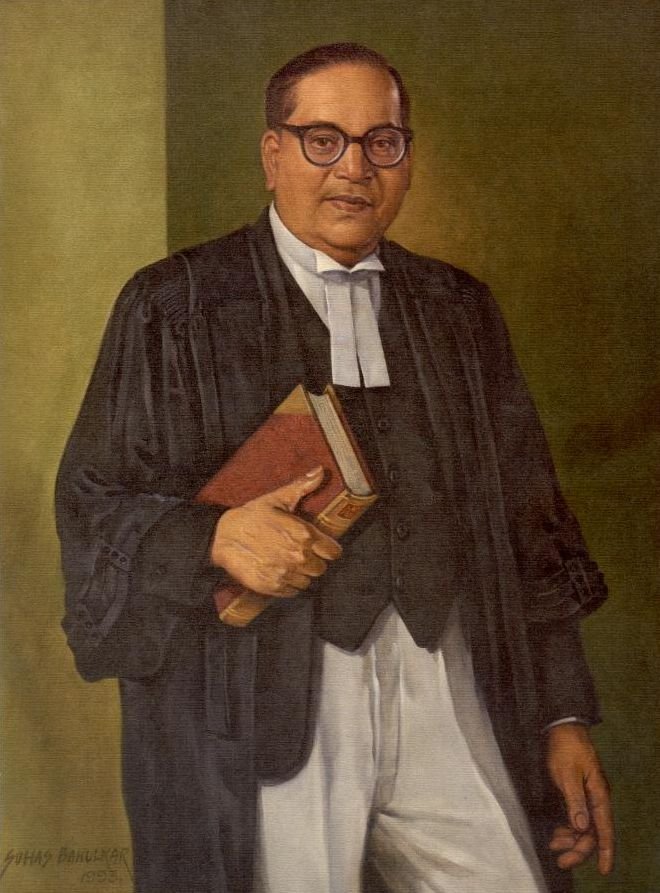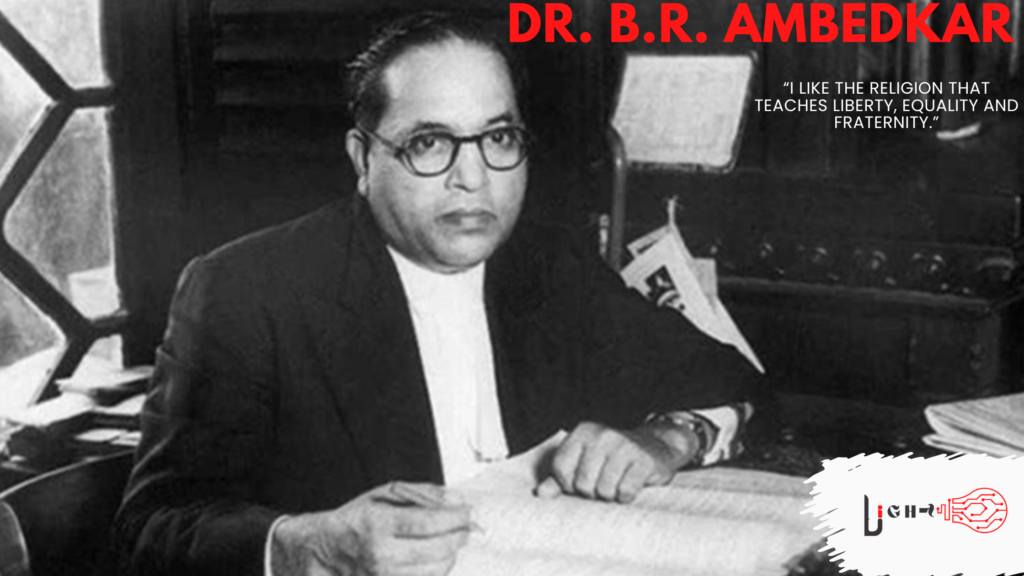Dr. B.R. Ambedkar is a very important person in Indian history. He is best known for being the main creator of the Indian Constitution and a strong defender of Dalit rights. His life and work have greatly influenced India’s social and political landscape. This blog looks at his journey from humble beginnings to becoming a key figure in shaping modern India.
Life and Education
Born on April 14, 1891, in Mhow, Madhya Pradesh, Bhimrao Ramji Ambedkar faced significant social discrimination from a young age. As a member of the Dalit community, he experienced the harsh realities of the caste system firsthand. Despite these challenges, Ambedkar was determined to pursue education and personal growth.His father, Ramji Maloji Sakpal, served in the British Indian Army, which allowed Ambedkar access to education. However, the systemic discrimination he faced in school, where he was often segregated and mistreated, deeply influenced his resolve to fight for social justice.
Academic Achievements
Ambedkar’s academic journey is nothing short of remarkable. He completed his matriculation in 1907, followed by a degree in Economics and Political Science from Bombay University in 1912. His thirst for knowledge led him to Columbia University in the United States, where he earned a Master’s degree in Economics in 1915, and later, a Ph.D. in 1927.He also studied at the London School of Economics and earned law degrees from Gray’s Inn, London. His extensive education equipped him with the tools to challenge and reform the social injustices prevalent in Indian society.
Contributions to the Indian Constitution
Drafting the Constitution
Dr. Ambedkar’s most important contribution to India was being the Chairman of the Drafting Committee of the Indian Constitution. He was responsible for creating a document to govern the diverse and newly independent country. Using his legal skills and understanding of social issues, Ambedkar focused on social justice and aimed to ensure equality for all citizens, regardless of caste, religion, or gender. The Indian Constitution, adopted on January 26, 1950, reflects his vision and dedication.
Key Principles and Ideas
Ambedkar’s vision for the Indian Constitution was grounded in principles of liberty, equality, and fraternity. He introduced provisions for affirmative action to uplift historically marginalized communities and advocated for the abolition of untouchability. His ideas on economic and social democracy were revolutionary, seeking to balance political power with social justice. Ambedkar’s work ensured that the Constitution was not just a legal document but a powerful tool for social transformation.
Annie Mascarene: A Revolutionary Woman Who Changed the Course of Indian Politics
To know more click here:https://light.vintbit.com/kerala-history/annie-mascarene-freedom-fighter/
Advocacy for Dalit Rights
Efforts in Social Reform
Dr. Ambedkar’s advocacy for Dalit rights was relentless. He founded the Bahishkrit Hitakarini Sabha in 1924 to promote education and socio-economic improvement among Dalits. He also launched various publications to spread awareness about caste-based discrimination and mobilize public opinion.
Ambedkar’s work extended beyond advocacy to practical reforms. He established educational institutions, supported labor rights, and fought for the legal recognition of Dalits’ rights. His efforts were instrumental in raising awareness and driving legislative changes
Major Movements Led
One of the most significant movements led by Dr. Ambedkar was the Mahad Satyagraha in 1927, which aimed to secure Dalits’ right to access public water resources. He also played a key role in the Temple Entry Movement, which sought to allow Dalits entry into Hindu temples.
Ambedkar’s conversion to Buddhism in 1956, along with millions of his followers, was a profound statement against caste discrimination. This movement highlighted his commitment to seeking spiritual and social liberation for Dalits.
Legacy and Impact on Modern India

Dr. B.R. Ambedkar’s contributions have been widely recognized both during his life and after his death. He received India’s highest civilian award, the Bharat Ratna, in 1990. Many institutions, like universities and research centers, are named after him. His writings and speeches continue to inspire people, and his birthday, April 14th, is celebrated as Ambedkar Jayanti, a public holiday in India.
Ambedkar’s legacy lives on in modern India. His ideas on social justice and equality are still important in the fight against caste-based discrimination. Policies of affirmative action and social welfare influenced by him continue to help marginalized communities. His vision for an inclusive and democratic India guides social reformers and policymakers. Dr. Ambedkar’s life and work show the power of education, resilience, and a strong commitment to justice1.

